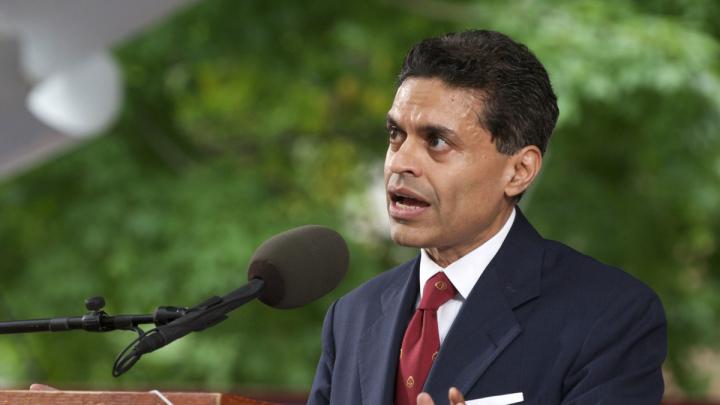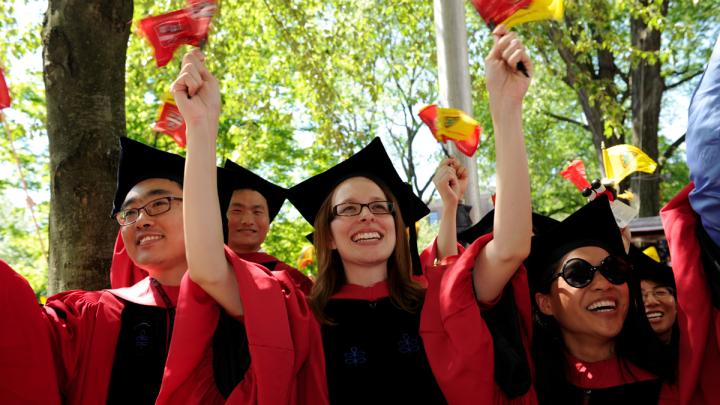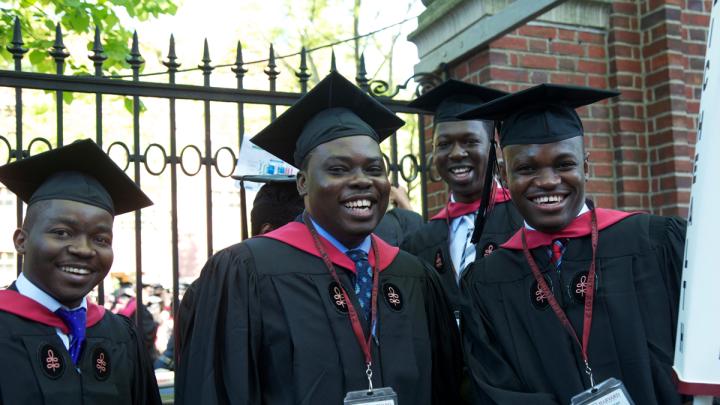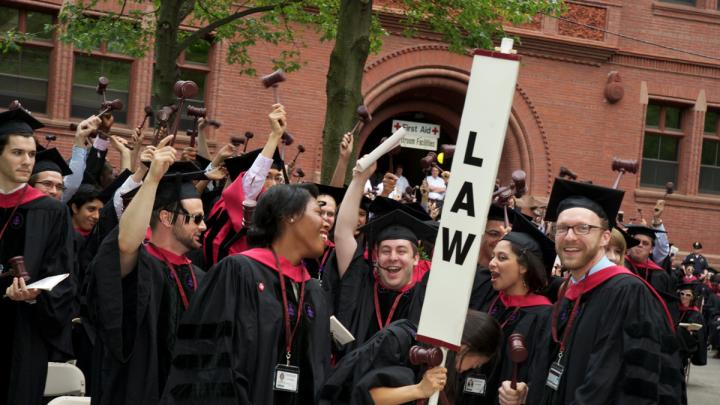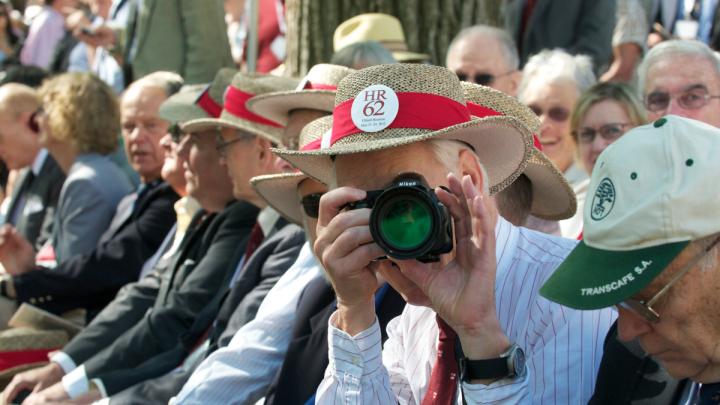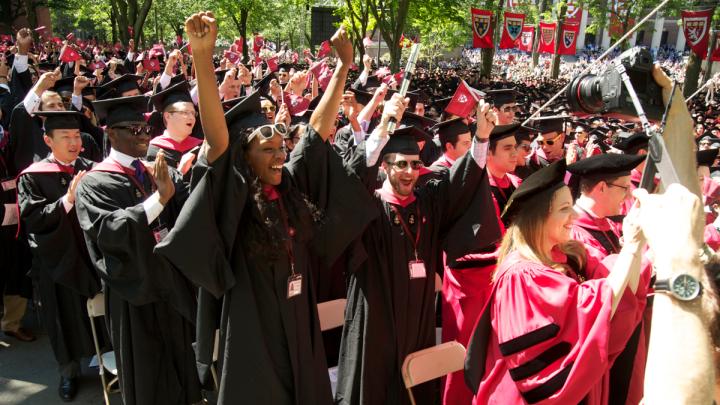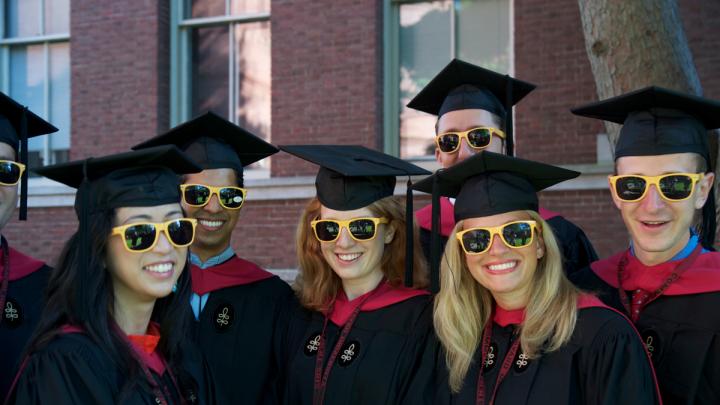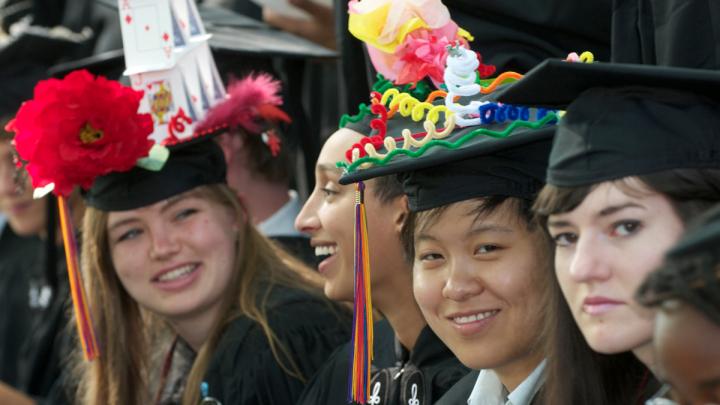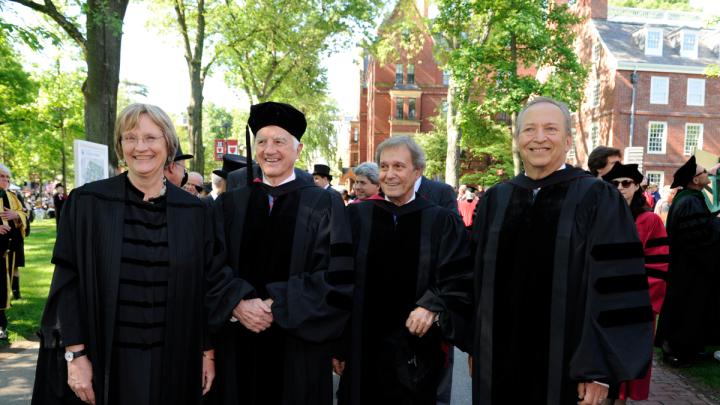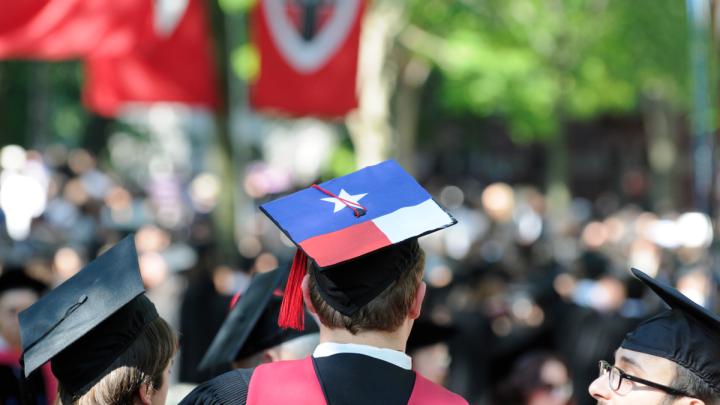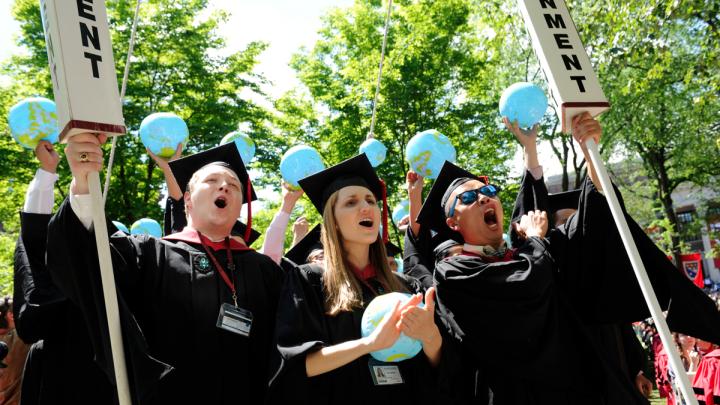Journalist Fareed Zakaria, Ph.D. '93, LL.D. ’12, painted an upbeat picture of today’s world in his Commencement address on May 24. In summing up the world graduates are entering, many speakers focus on doom and gloom: degree candidates “are told they are graduating into the slowest economic recovery since World War II,” he said, then noted continuing concerns about terrorism, as well as larger issues: “The earth is getting hotter, we’re running out of water, and a billion people are trapped in terrible poverty.”
While acknowledging these sobering realities, this year’s keynote speaker offered several powerful reasons for optimism. “The world we live in is, first of all, at peace—profoundly so,” began Zakaria, whose career has spanned CNN, Newsweek and Time magazines, The Washington Post and multiple books. “The richest countries of the world are not in major geopolitical, geomilitary competition with one another—no arms races, no proxy races, no wars, no cold wars among the richest countries of the world. You would have to go back hundreds of years to find an equivalent period of political stability.”
Secondly, despite dismaying news of bombs going off in Afghanistan and elsewhere, he asserted that “the number of people who have died in wars, civil wars, and yes, terrorism, is down 50 percent this decade from the 1990s. It is down 75 percent from the preceding five decades….Steven Pinker argued that we are living in the most peaceful time in human history.” (Here, Zakaria’s aside became one of the speech’s lighter moments: “He should know, because he is a Harvard professor.”)
This political stability has enabled the emergence of a single global economy that has allowed “countries from all over the world to participate and flourish.” In 1980, Zakaria observed, about 60 nations experienced a robust economic growth rate of at least 4 percent a year, but by 2007, that number had doubled, and “even after the financial crisis, that number stands today at about that 80.” The growth of the global economy has meant that, according to the United Nations, poverty has been reduced more in the last 50 years than in the last 500 years, “and most of that reduction has taken place in the last 20,” said Zakaria. “The average Chinese person, for example, is 10 times richer than he or she was 50 years ago, with 25 years more of life expectancy.” Worldwide life expectancy is rising to the extent that “We gain five hours of life expectancy every day,” he reported. “Imagine that—without even exercising!”
To understand the extent of recent progress, the honorand recommended that audience members “just look at the cell phone in your pocket….That cell phone has more computing power than the Apollo space capsule that went to the moon. That capsule couldn’t even Tweet!” Turning to educational progress, he said that in the last 40 years, the number of college graduates worldwide has risen fourfold for men and sevenfold for women.
Furthermore, “A world at peace and broader prosperity—the rise of the rest—is going to be particularly good for the United States,” he argued, because the United States’ economy is the largest and most dynamic one in the world. This country also hosts “almost all the world’s great universities. There is in China and India no Harvard, and there will not be for decades, perhaps ever.”
Zakaria called the United States “the only country in the industrialized world that is demographically vibrant,” noting that “we add three million people every year,” many of them immigrants. He flatly predicted that “by the year 2050, America will have a better demographic profile than China.” In sum, “America has its problems, but I would rather have its problems than most any other country’s in the world.”
In conclusion, he articulated his view that concerted, informed action has been producing far more success in coping with public dangers than is generally recognized. He cited the successful public-health interventions that contained the H1N1 virus in Mexico in 2009, and the international efforts that have curbed global terrorism over the past decade: the attacks of 9/11 “did not usher in an age of terrorism, with al-Qaeda going from strength to strength.” Zakaria’s credo: “When we come together, when we put aside our petty differences, when we cooperate, the results are astounding.”
His address followed the customary annual speech by President Drew Faust, who used the occasion of the University's 375th anniversary to discuss how an institution with such a long history used it to prepare itself for change, innovation, and a long future. Hear (using the recording above) or read the text of President Faust's address.
The Commencement Day program also included three student speeches. In the morning, Michael Velchik ’12 delivered the Latin oration; Anthony Hernandez ’12 gave the undergraduate English address; and Jonathan Service, Ph.D. ’12, gave the graduate English address. Read more about how the student speakers are selected and prepared for the big day, including the history of the Latin oration.
